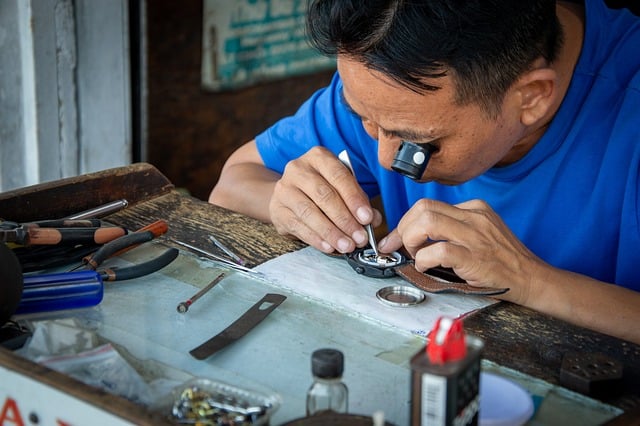HVAC systems play a critical role in maintaining comfortable indoor environments by controlling temperature, humidity, and airflow. These complex systems comprise various elements like heaters, air conditioners, ducts, thermostats, and filters that work together to ensure optimal performance. Regular maintenance is key for peak system operation, with professional HVAC repair services being essential when issues occur. Specialized technicians can diagnose and resolve a range of problems, from minor adjustments to significant repairs. Understanding how each component affects the overall system is crucial for both maintaining system efficiency and addressing issues effectively. This knowledge helps in regulating temperature differentials, humidity levels, and airflow, which are essential for indoor comfort and energy savings. Routine professional servicing can prevent many problems, extending the life of your HVAC system and reducing repair costs. The management of airflow is particularly important for HVAC efficiency, as it affects both energy use and occupant satisfaction. Regular monitoring allows for early detection of potential issues, minimizing downtime due to unexpected breakdowns and enhancing overall system longevity. Additionally, assessing temperature differentials and humidity levels alongside airflow management ensures the system provides maximum comfort with minimal energy consumption, preventing problems like hot or cold spots and maintaining good indoor air quality by preventing mold growth. In summary, a comprehensive maintenance strategy, including regular checks of environmental factors by professional HVAC repair services, is vital for system longevity and user well-being, underscoring the importance of timely and expert HVAC repairs.
navigating the complexities of indoor climate control is essential for maintaining a comfortable and healthy environment. This article delves into the critical aspects of HVAC systems, emphasizing the importance of accurately measuring airflow, temperature differential, and humidity levels to ensure peak performance. We’ll explore the tools and techniques required to assess these parameters effectively, addressing common issues that necessitate HVAC repair. From DIY tips for homeowners to insights on selecting a reputable contractor, this guide provides a comprehensive overview of optimizing your HVAC system for year-round efficiency and energy savings.
- Understanding HVAC Systems and Their Role in Indoor Comfort
- The Importance of Measuring Airflow in Maintaining HVAC Efficiency
Understanding HVAC Systems and Their Role in Indoor Comfort

HVAC systems play a pivotal role in maintaining indoor comfort by regulating temperature, humidity, and airflow within residential and commercial spaces. These systems are intricate and consist of various components such as heaters, air conditioners, ducts, thermostats, and filters that work in concert to create a comfortable environment for occupants. Proper functioning of these components is essential for optimal performance, and HVAC repair services are vital when any part of the system malfunctions or requires maintenance. Technicians skilled in HVAC repair diagnose and address issues ranging from minor adjustments to comprehensive overhauls, ensuring that the system operates efficiently and effectively. Understanding the mechanics of an HVAC system includes recognizing how each component contributes to overall performance, from managing the temperature differential to controlling humidity levels and ensuring sufficient airflow circulation. This understanding is crucial for both routine maintenance and for addressing any malfunctions that could compromise indoor comfort and energy efficiency. Regular servicing by professionals can prevent many common problems, extend the lifespan of the system, and reduce the need for costly repairs down the line.
The Importance of Measuring Airflow in Maintaining HVAC Efficiency

Effective HVAC system operation hinges on precise airflow management, a critical aspect that directly influences overall efficiency. Measuring airflow is essential for optimizing the performance of heating, ventilation, and air conditioning (HVAC) systems. Proper airflow distribution ensures that each part of a building receives adequate conditioned air, which can significantly reduce energy consumption and improve comfort levels for occupants. Inadequate or obstructed airflow can lead to overworked HVAC components, increased wear and tear, and the need for costly HVAC repair services. By regularly monitoring airflow, maintenance personnel can prevent such issues, maintain system integrity, and extend the lifespan of the equipment. This proactive approach not only saves on energy bills but also minimizes downtime by avoiding unexpected breakdowns, thereby ensuring a consistent and healthy indoor environment.
Concurrently, assessing temperature differentials and humidity levels in conjunction with airflow measurements provides a holistic view of HVAC system performance. These readings help in fine-tuning the system to maintain optimal comfort conditions and energy efficiency. For instance, identifying hot or cold spots within a building can guide targeted adjustments to improve thermal comfort without excessively straining the HVAC system. Similarly, monitoring humidity levels is crucial for preventing mold growth and ensuring air quality. Regularly measuring these environmental factors not only contributes to the longevity of the HVAC system but also enhances the well-being of those who use the space, underlining the importance of a comprehensive approach to HVAC maintenance and repair.
Effective management of indoor environmental quality is pivotal for maintaining comfort and efficiency within residential and commercial spaces. This article elucidates the intricate functions of HVAC systems, emphasizing the significance of precise airflow measurements, temperature differentials, and humidity control in optimizing system performance. Regular monitoring and timely HVAC repair are essential practices to ensure consistent indoor conditions that promote well-being and energy savings. By leveraging advanced tools and strategies for HVAC analysis, property owners and service providers can enhance system longevity and reliability, thereby creating healthier and more sustainable environments.
